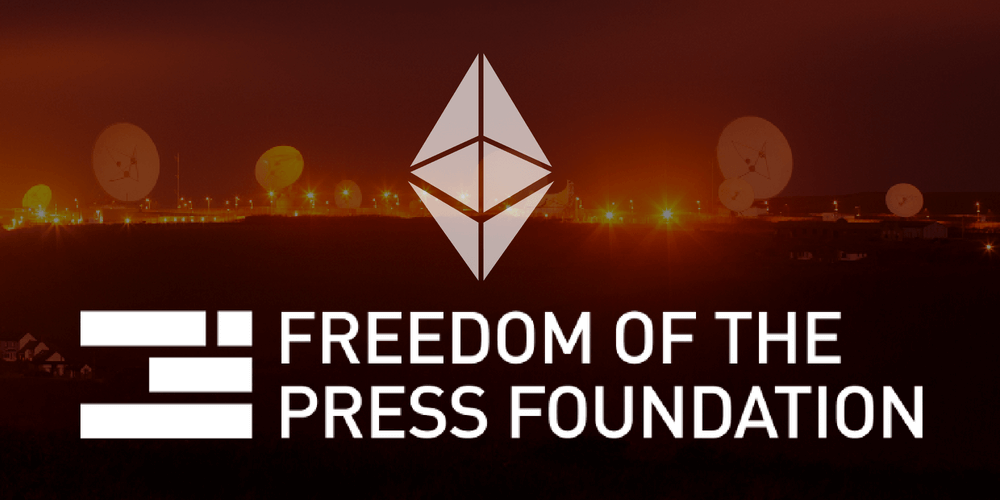
The Freedom of the Press Foundation (FPF) has announced that it is accepting donations in cryptocurrency, which will go toward its projects of advancing press freedom.
Yesterday, it was announced that Mainframe, a decentralised application platform that aims to be censorship and disruption resistant, donated 1,000 ETH to the FPF from its Proof of Heart Community Campaign. According to an announcement, the two organisations have a shared commitment for protecting freedom of speech, promoting the use of digital security tools, and preserving the public’s right to information.
Some of its board of directors include journalists, activists, and whistleblowers, such as Edward Snowden, Glenn Greenwald, Laura Poitras, and Daniel Ellsberg.
The donation from Mainframe to the FPF signals the foundation’s first significant crypto donation, in addition to its support of accepting contributions in other digital currencies. Founded in 2012, the FPF now accepts donations in Bitcoin, Ethereum, Bitcoin Cash, Litecoin, and Zcash.
“Our community is committed to the protection of freedom, privacy, and digital security, and we are proud to support their mission beyond the contribution being made today – the first of its kind in the rapidly evolving cryptocurrency landscape,” said Mick Hagen, founder and CEO of Mainframe. “Ultimately, we expect the contribution to kickstart an ongoing relationship to preserve these ideals amidst the evolution of the digital landscape.”
The donation, valued at $534,000 at the time of publishing, will go toward the FPF’s mission of protecting journalists and whistleblowers in the digital age. It will also aid research into the potential use of decentralised technology for tackling censorship and promoting security.
One of the foundation’s projects includes SecureDrop, an open-source whistleblower platform that permits sources to anonymously send documents and messages to journalists. Used at more than 60 news organisations, it uses the Tor network, strong encryption, and a carefully designed system architecture to ensure anonymity and security.
Other projects that the 501(c)3 non-profit organisation is supporting include: the U.S. Press Freedom Tracker, a website that brings together over 24 press freedom groups to count and document all press freedom violations in the U.S.; Secure the News, which tracks the adoption of HTTPS, or Hypertext Transfer Protocol Secure, encryption by news organisations around the world, providing protection to readers; Haven, an Android app designed for investigative journalists, human rights defenders, and people at risk of forced disappearance, that enables them to turn their smartphone into a personal physical security system to watch for intruders; Archive the News, where the FPF maintains a complete archival copy of news websites that are threatened by wealthy buyers or litigants with deep pockets; FOIA Feed, a Twitter account that highlights news stories that rely on the Freedom of Information Act; and Sunder, an open-source digital security tool that enables a person to split their passwords and passphrases, where several parts are required to recover the whole. Sunder is still in the early stages of development.

